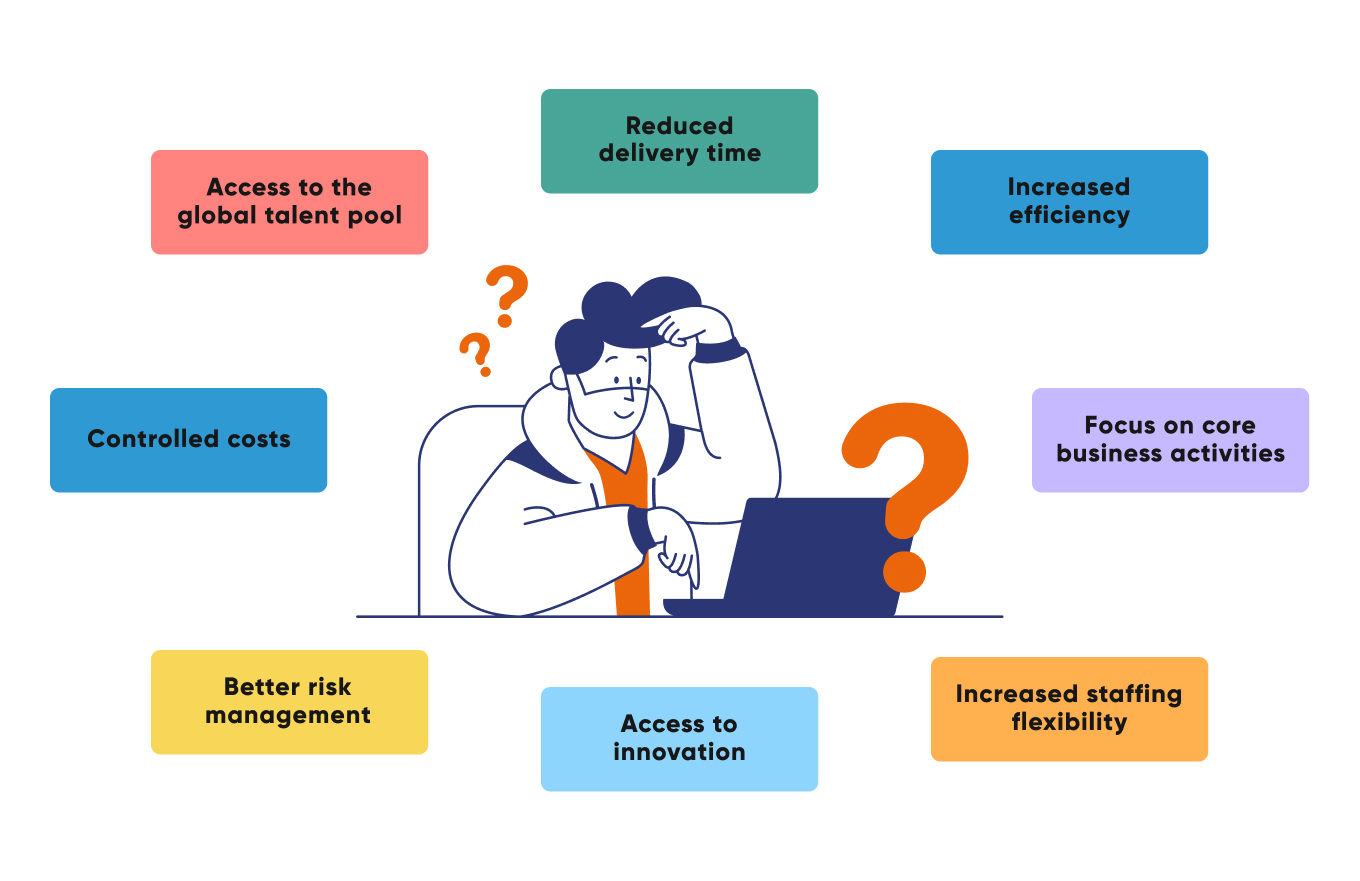The Benefits of Outsourcing: A Comprehensive Guide
In today’s fast-paced business world, outsourcing has become an integral part of many organizations’ strategies. Outsourcing refers to the practice of hiring external resources or services to handle specific tasks or functions that were traditionally performed in-house. In this article, we will explore the numerous benefits of outsourcing and how it can significantly impact the success and growth of your business.
Cost Savings
One of the primary reasons why businesses choose to outsource is the potential for cost savings. By outsourcing certain tasks or functions, companies can reduce their operational expenses significantly. This is because outsourcing allows businesses to tap into specialized expertise without the need for expensive infrastructure, equipment, or additional staff. Outsourcing also eliminates the need for costly training and development programs, as the external service providers are already equipped with the necessary skills and knowledge.
Access to Specialized Skills and Expertise
Outsourcing provides businesses with access to a wide range of specialized skills and expertise that may not be available in-house. Whether it’s IT support, digital marketing, customer service, or accounting, outsourcing allows companies to leverage the knowledge and experience of professionals who excel in their respective fields. This access to specialized skills can help businesses stay competitive, enhance their operational efficiency, and drive innovation.
Increased Focus on Core Competencies
Outsourcing non-core functions enables businesses to redirect their focus and resources towards their core competencies. By delegating routine or time-consuming tasks to external service providers, organizations can concentrate on activities that directly contribute to their value proposition and overall business objectives. This increased focus on core competencies can lead to improved productivity, higher quality outputs, and ultimately, a competitive advantage in the market.
Enhanced Scalability and Flexibility
Outsourcing provides businesses with the flexibility to scale their operations up or down based on their current needs and market conditions. Whether it’s a seasonal increase in demand or a sudden decrease in workload, outsourcing allows companies to quickly adjust their resource allocation without the need for significant investments or layoffs. This scalability and flexibility can help businesses adapt to changing market dynamics and seize new opportunities with ease.
Improved Risk Management
Outsourcing can also contribute to improved risk management for businesses. By partnering with external service providers, organizations can share certain risks and responsibilities. This can include risks associated with compliance, data security, or technological advancements. Outsourcing providers often have robust risk management frameworks in place, ensuring that potential risks are identified, mitigated, and monitored effectively. This shared risk approach can provide businesses with peace of mind and allow them to focus on their core operations.

In conclusion, outsourcing offers numerous benefits that can significantly impact the success and growth of businesses. From cost savings and access to specialized skills to increased focus on core competencies and enhanced scalability, outsourcing can help organizations stay competitive in today’s dynamic business landscape. By carefully selecting the right outsourcing partners and effectively managing the relationship, businesses can unlock the full potential of outsourcing and achieve sustainable long-term success.
Frequently Asked Questions about the Benefits of Outsourcing
1. What is outsourcing?
Outsourcing is the practice of hiring an external company or individual to perform certain tasks or services that were traditionally done in-house.
2. What are the main benefits of outsourcing?
The main benefits of outsourcing include cost savings, access to specialized skills, increased efficiency, and the ability to focus on core business functions.
3. How does outsourcing help in cost savings?
Outsourcing can help in cost savings by eliminating the need for hiring and training new employees, reducing overhead costs, and taking advantage of lower labor costs in other countries.
4. What types of tasks can be outsourced?
Almost any non-core business function can be outsourced, including IT services, customer support, accounting, human resources, and manufacturing.
5. How does outsourcing provide access to specialized skills?
By outsourcing, companies can tap into the expertise and experience of specialized service providers who have a deep understanding of a particular field or industry.
6. How does outsourcing increase efficiency?
Outsourcing allows companies to focus on their core competencies while delegating non-core tasks to external experts, leading to improved productivity and streamlined operations.
7. Can outsourcing help businesses scale more easily?
Yes, outsourcing can facilitate business scalability as it provides the flexibility to quickly scale up or down operations based on changing demands without the need for significant investments in infrastructure or personnel.
8. What are the potential risks of outsourcing?
Potential risks of outsourcing include loss of control over certain processes, data security concerns, language or cultural barriers, and potential conflicts arising from differences in business practices.
9. How can businesses choose the right outsourcing partner?
Businesses should consider factors such as the outsourcing provider’s experience, reputation, expertise, quality assurance processes, and ability to align with the company’s goals and values.
10. Can outsourcing benefit small businesses as well?
Absolutely! Outsourcing can be particularly beneficial for small businesses as it allows them to access resources and expertise that may be otherwise unaffordable, helping them compete with larger organizations.




